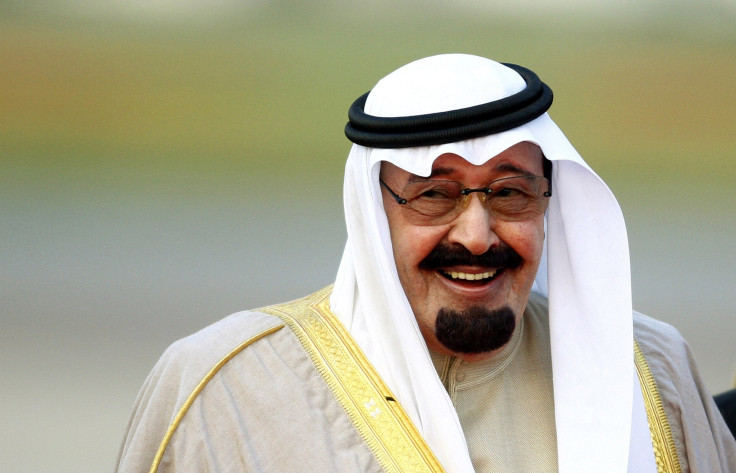Saudi Arabia’s Shaky Succession Plan Could Leave Kingdom Vulnerable To Militant Infiltration

Saudi Arabia has had two kings on the throne within the last decade, and may soon have a third. The absolute monarchy's succession plan does not inspire confidence in future stability, as all eligible candidates for the throne face advanced age and a region in turmoil.
King Abdullah bin Adbul Aziz died early Friday morning, and was immediately succeeded by his half-brother, Crown Prince Salman. At 79 and reportedly suffering from dementia, Salman was a risky choice for the country ahead of what experts believe will be a tumultuous future for the oil-rich Saudi kingdom.
Typically, the king chooses his successor, a choice which is then approved by the Allegiance Council, an institution introduced in 2006 to aid with the process. However, before his death, Abdullah appointed his youngest brother, 71-year-old Prince Muqrin, as the deputy heir to the throne. In theory, Muqrin, who is thought to be well-liked in the kingdom and a friend to the U.S, would succeed Salman.
Now that he has been appointed king, Salman can replace Muqrin and choose his own successor. The successor must be from within the remaining sons of King Abdulaziz bin Saud, the first monarch of Saudi Arabia, who died in 1953. Abdulaziz had 35 sons when he died, but now, more than 60 years later, only few are in good enough health to take the throne. After the pool of sons runs dry, the Allegiance Council will likely turn to Abdulaziz’s grandsons to fill the position, according to the Washington Post.
Salman served as minister of defense since 2011, and before that served as Governor of the Riyadh Province since 1963. Though his experience certainly qualifies him for the position, Salman’s poor health led some to question the Allegiance Council’s choice.
“Having a king with dementia is the last thing they need at this difficult time,” Simon Henderson, an expert on the Saudi succession at the Washington Institute for Near East Policy, told the Washington Post. “Yemen is falling apart, ISIS is knocking at the door . . . this is an extraordinarily dangerous Middle East from a Saudi perspective.”
In the past year, the swift rise of the Islamic State in Iraq and Syria has threatened to overrun the borders of Saudi Arabia's neighbors, bringing the extremist group within their countries . In the past two months, the militant group has set its sights on the kingdom, even going as far as announcing its desire to conquer it for its caliphate. Last month, Saudi officials said terrorist operatives had launched an attack on the Saudi border with Iraq, killing Saudi border guards.
ISIS militants reportedly rejoiced at the death of the Saudi king, as the terror group thrives in areas where there is high political instability or vulnerability.
“ISIS has been thriving in areas where governance is very weak or collapsed, and that's not the case in Saudi Arabia,” Matthew Waxman, an adjunct senior fellow for law and foreign policy at the Council on Foreign Relations, recently told International Business Times. “The Saudi government was quite effective in combating al Qaeda, and its record during the past decade suggests that it is not nearly as susceptible to the ISIS threat as other countries in the region.”
Under King Abdullah, Saudi implemented a “counseling and care” program, a sort of rehab for jihadists who had left the country to fight in Iraq and Syria and then returned home, according to The Soufan Group. Of the 2,500 people who participated in the program over the past two years, 12 percent have “relapsed,” Ministry of Interior spokesman Maj. Gen. Mansour Al-Turki said last month.
However, Saudi’s problems go beyond the ISIS threat. In the last week, the situation in Yemen next door has rapidly deteriorated, forcing the resignation of President Abd Rabbo Mansur Hadi and his Sunni-led administration, backed by the U.S., Saudi Arabia and other Gulf states. This leaves a power vacuum that both al Qaeda in the Arabian Peninsula (AQAP) and the Shiite Houthi rebels, reportedly backed by Iran, want to fill.
AQAP has also been making gains in the last month across the region in a bid to boost its standing in the jihadi hierarchy; the militant group has long wanted to seize Saudi Arabia, the Sunni powerhouse.
The House of Saud rules with a firm hand and has been able to keep al Qaeda at bay for more than a decade, but any instability could open the door to dangerous infiltration by militant groups.
© Copyright IBTimes 2024. All rights reserved.






















